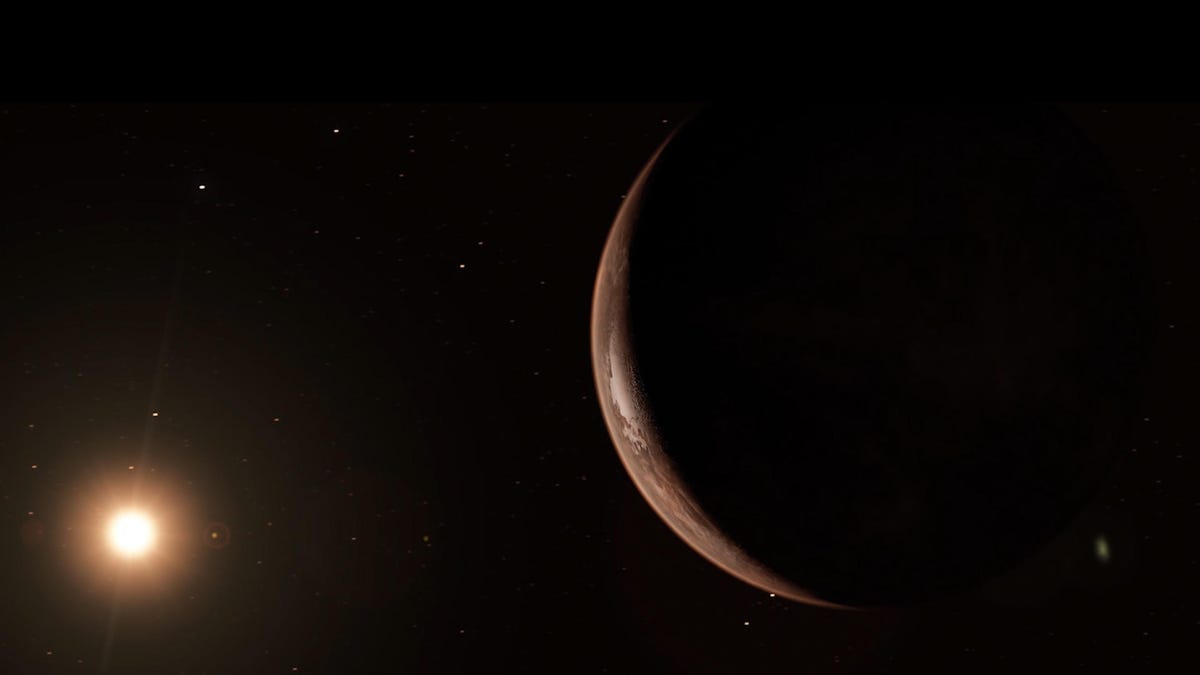Nearby Barnard's Star hosts an icy planet with new hope for alien life
It's not the nearest exoplanet, but it may have the best chance of being lively on at least a small scale.

Last year we learned Barnard's Star, the second closest star system, is circled by a frozen super-Earth. But new research offers hope that at least primitive life might have a warm enough place to survive on the otherwise chilly world.
The super-Earth Barnard b (or GJ 699 b) is also the second closest planet discovered beyond our solar system so far, at just six light-years away. Although it orbits Barnard's Star at about the same distance Mercury orbits our sun, the surface of the planet is likely very cold (-274 Fahrenheit, or -170 Celsius) because the star is a relatively dim red dwarf providing the planet with only about 2 percent of the solar energy we get from our sun.
This doesn't necessarily curse Barnard b to a lifeless existence, though, according to astrophysicists from Pennsylvania's Villanova University who say the planet might have a hot liquid iron core producing geothermal energy.
"Geothermal heating could support 'life zones' under its surface, akin to subsurface lakes found in Antarctica," Edward Guinan, one of the researchers, said in a statement. The news coincided with the team's presentation Thursday at a meeting of the American Astronomical Society in Seattle.
Any life in such heat pockets would likely be pretty primitive. Scientists are also keen to check for evidence of life in subsurface oceans hidden beneath the frozen shells of Jupiter's moon Europa and Saturn moon Enceladus.
"We note that the surface temperature on Jupiter's icy moon Europa is similar to Barnard b," Guinan adds, "but, because of tidal heating, Europa probably has liquid oceans under its icy surface."
The team's findings are based on over 15 years worth of high-precision observations of Barnard's Star that'll be included in an upcoming report in Monthly Notices of the Royal Astronomical Society. Guinan hopes it might be possible to get a better look at Barnard b with the coming generation of very large telescopes.
"Such observations will shed light on the nature of the planet's atmosphere, surface, and potential habitability."
While the exoplanet Proxima b is closer, at only four light-years, it orbits the red dwarf star Proxima Centauri that appears to have a rather rude habit of blasting it with sterilizing solar flares. Barnard's Star, by contrast, is an older red dwarf and the good news for potential life in its orbit is that powerful flares from the old sun are believed to be a rarity.
The bad news, though, is that just such a rare flare was observed from Barnard's Star only 20 years ago. Hopefully any primitive aliens on Barnard b were able to survive in their geothermal hot tubs under a thick shield of ice.
NASA turns 60: The space agency has taken humanity farther than anyone else, and it has plans to go further.
Crowd Control: A crowdsourced science fiction novel written by CNET readers.

